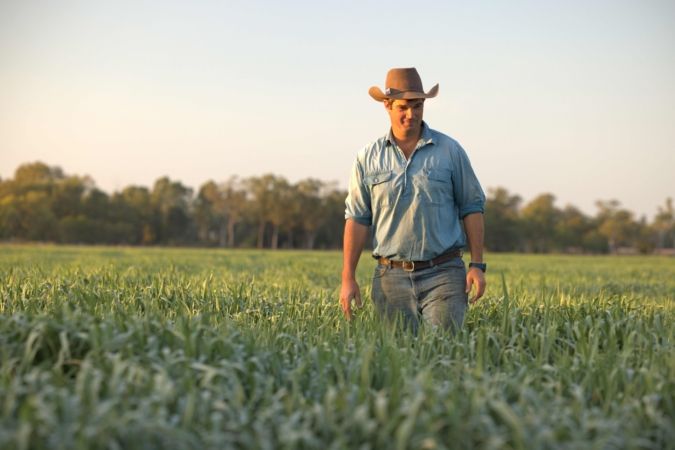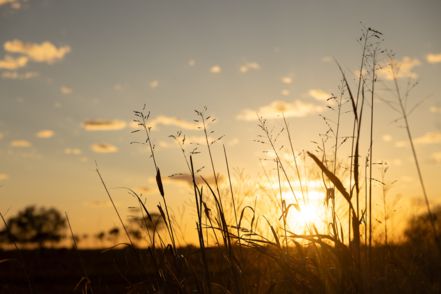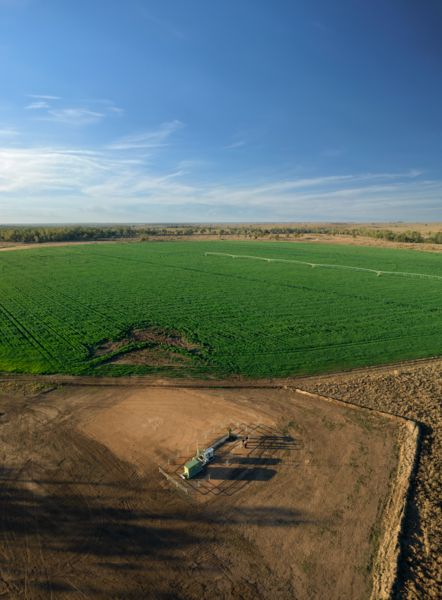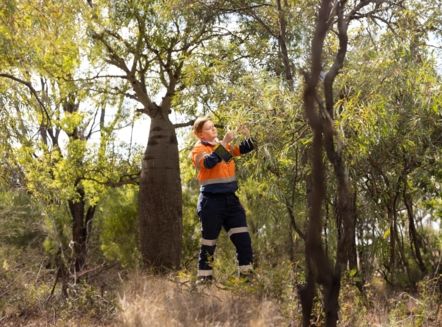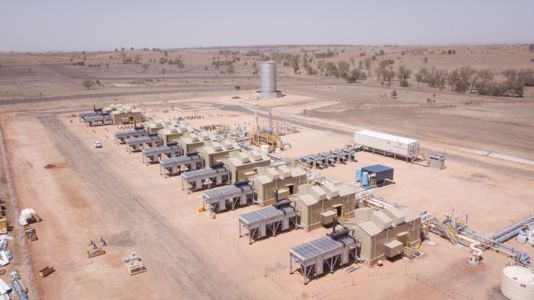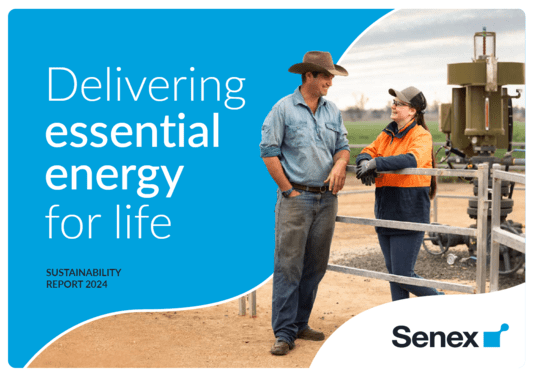Careful management of the environment
We live and operate on a shared planet, and Senex holds protection of our environment as one of our core values.
Responsible operation for Senex means being respectful of the shared environment, using resources wisely and for mutual benefits, and ensuring a positive legacy.
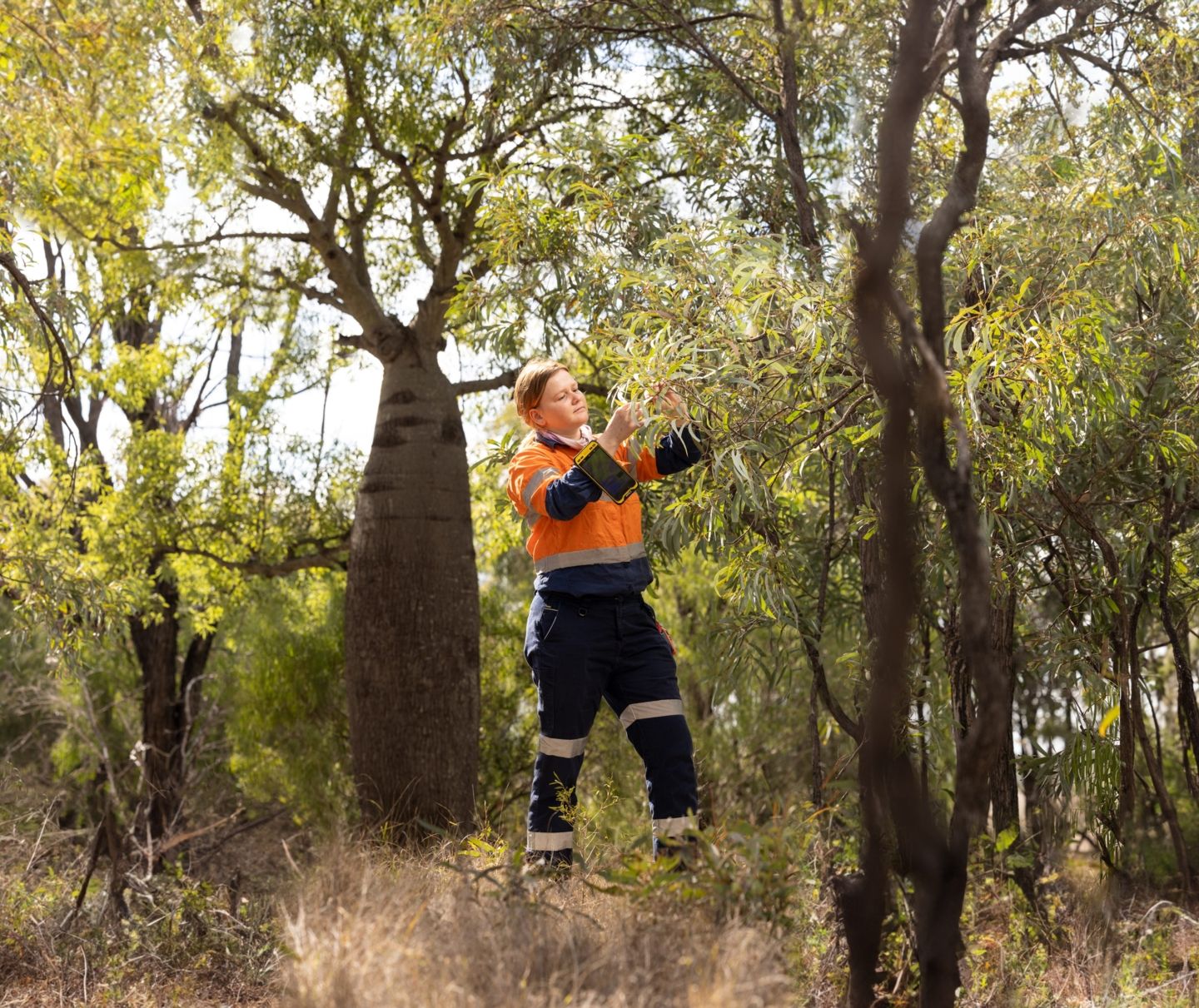
Shaping our environmental focus
Our approach to biodiversity, water and waste is aimed at ensuring impacts are managed appropriately and that opportunities to generate value are identified through collaboration and innovation.
Minimising our impact on land and biodiversity
We seek to understand and respect existing values of the land and uses to reduce our impact on biodiversity.
71% of Senex’s operating footprint is located on pre-disturbed pastoral land with uses of beef cattle, sheep and cropping, and as such there is limited remnant native vegetation.
We prioritise avoiding high biodiversity value areas and develop our understanding of the land through independent ecology surveys.
In 2022, we undertook 3,101 hectares of biodiversity surveys, for a total survey area of 11,672 hectares across our acreage.
We prioritise placing wells and infrastructure in existing cleared areas to avoid impacts on vegetation. We operate with a light footprint in the landscape, with wells spaced 500 to 1,000m apart.
Biodiversity offsets are used where avoidance of protected flora and fauna habitat is not plausible, and within 12 months following drilling, well sites are progressively rehabilitated and reduced in area by 40% to achieve a long-term average footprint of 60 x 60 metres.
Senex is committed to finding productive and sustainable uses for water produced through the natural gas production process.
We work with landholders to deliver irrigation infrastructure to use water generated from Senex’s operations.
In 2022, 640 ML of re-use water enabled irrigation of 249 hectares of farming land for summer and winter crops. Access to reliable and consistent water provides certainty now and in drier times.
An upgrade of the Atlas water treatment plant in 2022 increased our water recovery rates to 88%, increasing water available for beneficial re-use.
Senex is committed to minimising our carbon footprint and improving efficiency as part of responsible operations, backed by our Senex Climate Change Policy.
Senex has a relatively low emissions profile as a natural gas producer and our total emissions per year are well below thresholds set to define larger emitters such as the Safeguard Mechanism.
We make practical choices to reduce emissions intensity and improve efficiency in our projects and operations.
In 2022, our decarbonisation initiatives included the successful installation of hybrid solar gensets to reduce fuel usage and improve wellsite efficiency measures.
At Senex, we are constantly seeking ways to innovate, reduce waste and find circular economy solutions for different waste types.
We prioritise strategies to reduce and reuse waste materials from our operations wherever possible.
By partnering with a local business in Roma, we have found an alternative path for the high-density polyethylene (HDPE) used at our drilling sites and in 2022, 22.4 tonne of HDPE was diverted from landfill and given a new lease of life as bus benches and garden furniture.
In 2022, our drilling teams also made significant changes to use fewer resources, reduce waste and increase reuse in drilling of new wells and workovers, saving 155t of CO2e.
As Senex operations expand, so too does our commitment to finding productive and sustainable uses for water produced through the natural gas production process.
Drought proofing the Maranoa
Under a 10-year agreement, Senex has installed a modern irrigation scheme to provide long-term water supply and drought-proof grazing land in the Maranoa region of Queensland.
The irrigation scheme uses water produced from Senex natural gas wells at Roma North to irrigate 100ha of pasture used by landholder Trevor Kehl to feed around 300 cattle.
“Having water during dry times will be huge for us. Being able to grow crops means we can improve the quality of our cattle to sell at feedlots for a higher price than at auction. We’re very appreciative to Senex for choosing the little guy to work with”
– Maranoa grazier Trevor Kehl
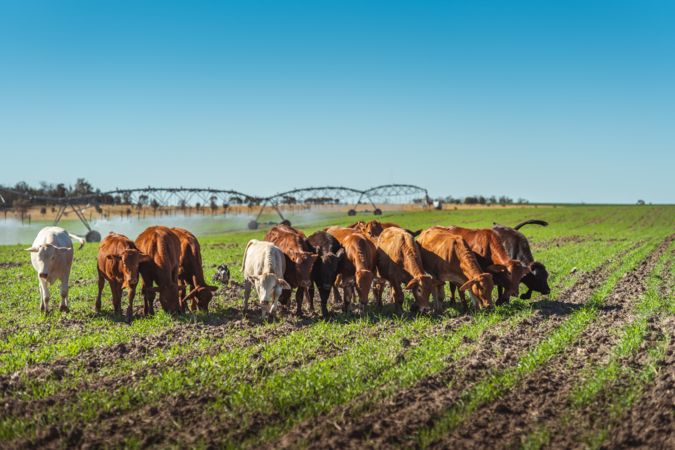
Reusing a precious resource for beneficial use
Senex is committed to finding productive and sustainable uses for water produced through the natural gas production process.
Under the agreement, Senex worked with the landholder to deliver the irrigation infrastructure including transfer pipes, a 100ML on-site storage dam and four centre pivot irrigators to utilise water from the Senex water treatment plant.
“Knowing we have feed in the sheds ready for when it inevitably dries out offers great peace of mind,” Col said.
- Third generation Santa Hereford-cross farmer Col Worsfold
